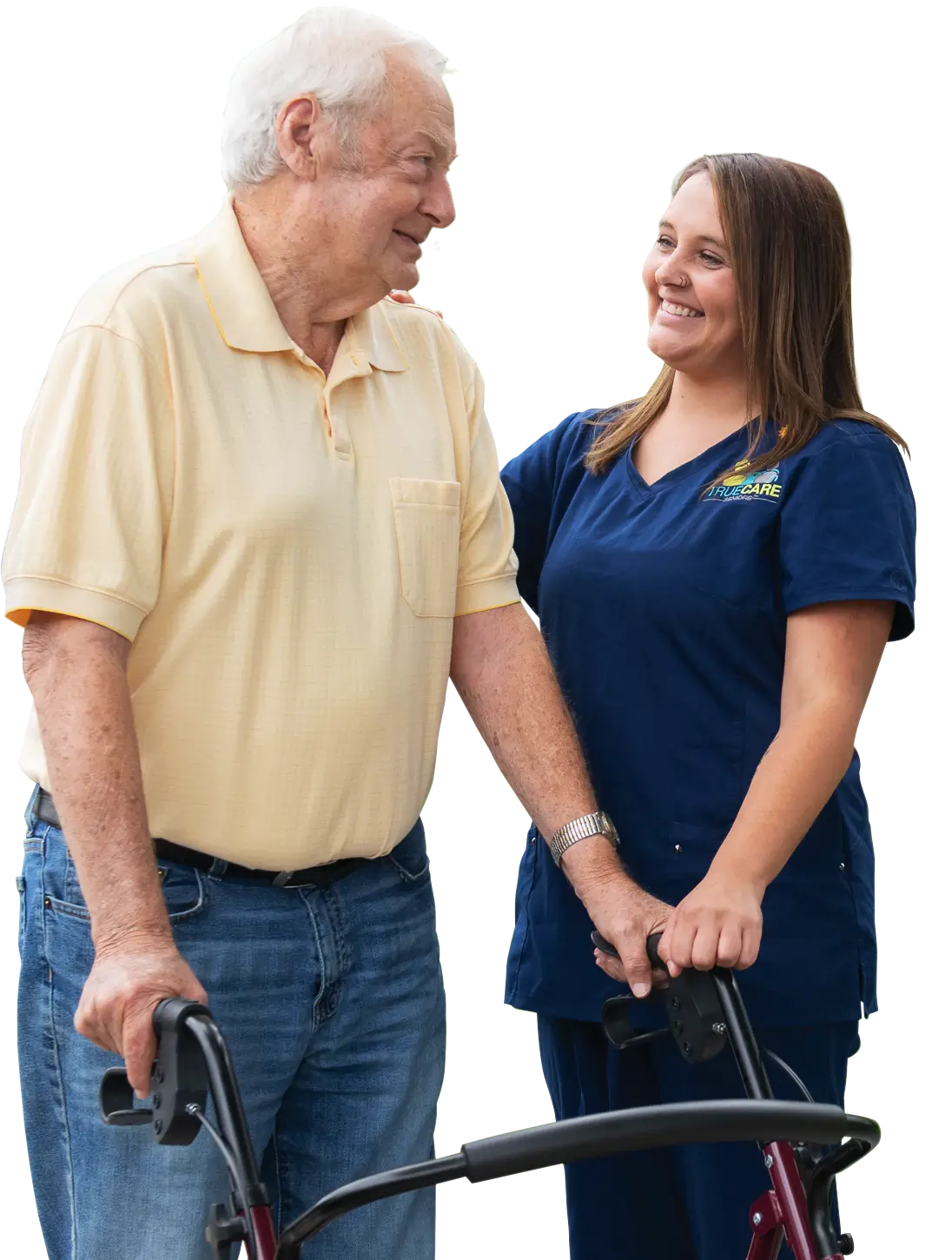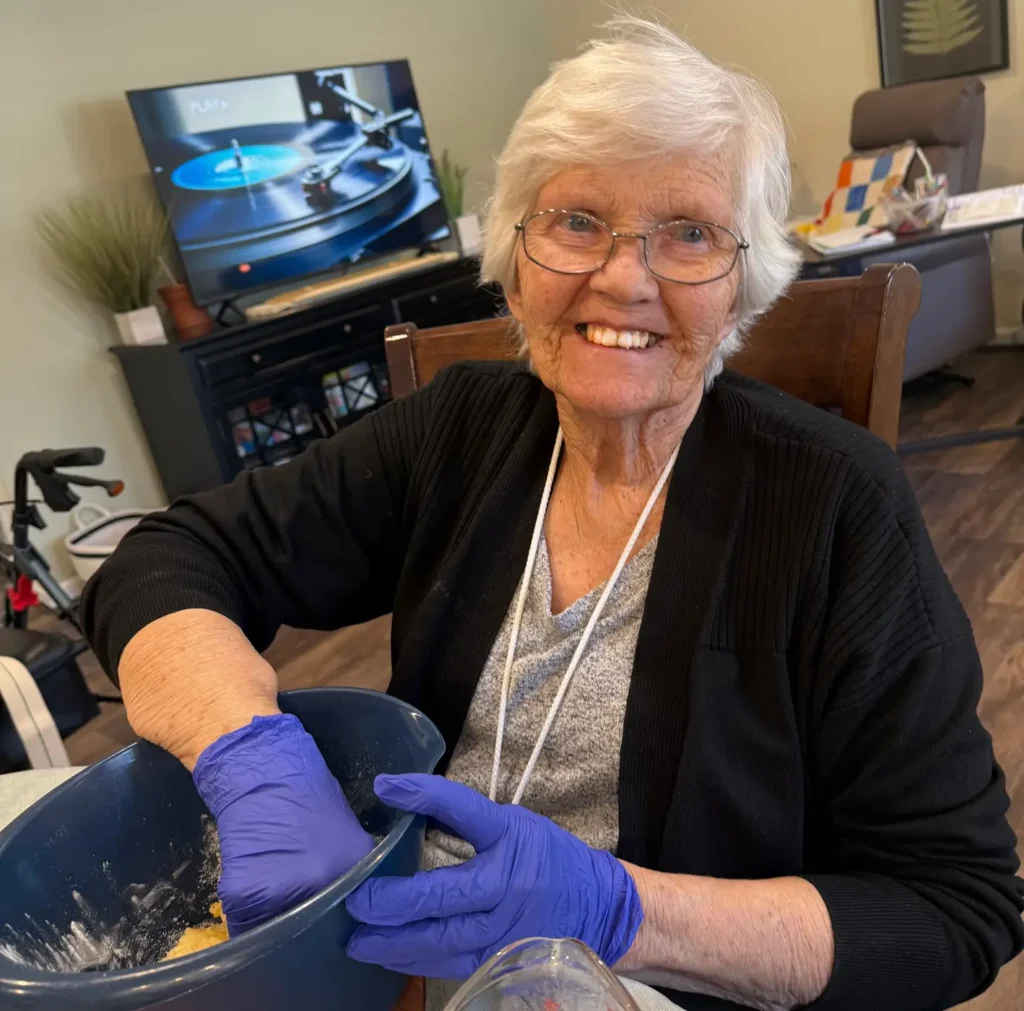Individualized,
Compassionate
Senior Care
At TrueCare, we provide senior care that you can count on with in-home care or in a TrueCare Home. Our Professional Caregivers provide individualized, person-centered care. They can assist with showering, dressing and grooming, medication reminders, transfer and walking needs, cooking, housework, engaging in hobbies and being a companion. They also can drive clients to things like social activities, appointments and shopping. Our clients live in their own homes or in our TrueCare Homes.
TrueCare allows spouses and family members to feel confident in the care provided their loved ones, whether they are near or far.

Locations
Not a franchise, TrueCare is locally owned and operated by Estate Planning and Elder Law Attorney J. Bryan Nugen. We offer in-home senior care services to individuals living across five counties in northeast Indiana.





— Services
Senior Care Tailored
To Your Needs
Consistent, trustworthy senior care. That’s what you get with TrueCare. We have two services to meet the needs of our clients:
- TrueCare Seniors is in-home care for independent living; and,
- TrueCare Homes offer round-the-clock care in a shared living home.


At-Home Care
TrueCare Seniors provides dignified, person-centered care to seniors in their own homes. We facilitate independence and improve the quality of life and outlook for each person we serve. TrueCare often works in conjunction with Home Health and Hospice Agencies.

Shared Living Homes
If living in your own home is no longer safe, TrueCare Homes provide a fresh alternative. Get round-the-clock personal care in a single-family home shared by four residents. A great choice for those with a diagnosis of dementia, Alzheimer’s or other memory care issue. TrueCare Homes are also frequently used for respite stays and end-of-life assistance — we work in conjunction with Home Health and Hospice Agencies.
— Testimonials
What our Clients & Families Say
"Our mom, Sharon, was our best friend growing up. As her disease progressed and we made the painful decision to move her, we found a place where she was still ‘seen’ like that person we knew. Thank you isn’t enough for all you did for her—but thank you. We will never forget the care you gave and your loving kindnesses."
"I just wanted to personally thank you for the opportunity for my mom to stay in a TrueCare Home. Patti was amazing! She was always available from our first contact with her… coming to the hospital to fill out all the paperwork, working with our schedule to give a tour, answering all our calls and texts, checking daily on Mom, sitting with us to encourage us on Mom’s final days. We will forever be grateful for the experience we had! We will always remember the kindness of the TrueCare staff."
"…The staff have been more than amazing in handling and caring for dad. I will always recommend your services to everyone! Your kindness means the world to Dad and us!"
"The agency provides a person to help with anything I need around the home. On some days I can do many things and other days I’m hurting too much. I have someone come for two hours a day and they come twice a week. Haley was here for a few weeks, and she did an amazing job. She is very happy and cheerful. She always makes sure that I don’t need anything else before she leaves. She does things she knows that needs to be done. I have two Shih Tzu’s and they both love her, and she treats them like her own. I have had Christine for some time on and off. She and I have become very close friends. She is always there when I need her. She also is very helpful around me and does everything I need her to do. Both girls have become my best friends. Both girls are very good representatives of TrueCare!"
"Trina has been a great fit with my dad, and I’m so appreciative of her energy, patience and kindness. He looks forward to seeing her every morning! Honestly, the way all of you at TrueCare create personal connections with the people you work with — families, too — is so refreshing. So glad we got in touch with you!"
Reliable,
Trustworthy
Senior Care.
Live independently with a helping hand from TrueCare Seniors or shared living with TrueCare Homes. Get a FREE personal assessment of your or your loved one’s care needs today.

